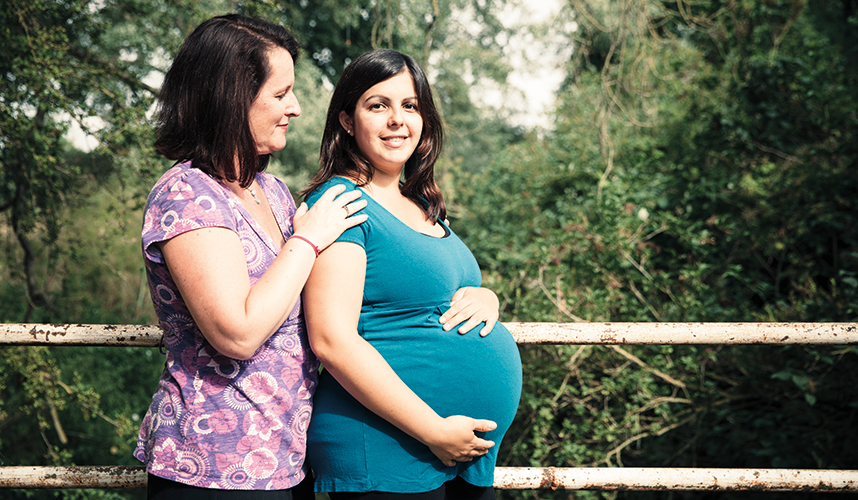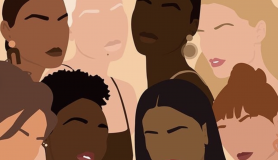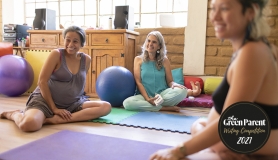Sophie Messager became interested in the importance of postnatal recovery while training as a doula. Realising that this was an underexplored part of the birthing journey, Sophie, who has a PhD in the physiology of reproduction, began gathering information about the post-birth period from around the world. Along with her personal experiences as a UK-based French woman married to a Hong Kong-born man, the mother-of-two identified a number of simple steps to help nurture and nourish new mums after the birth of their baby.
In her book, Why Postnatal Recovery Matters, Sophie sets out the four pillars of postnatal recovery – rest, food, bodywork and social support – and encourages new mums and their friends and families, as well as birth workers, such as doulas, to reclaim traditional wisdom in the modern world.
How did you come to write Why Postnatal Recovery Matters?
I became interested in postnatal recovery when I was doing doula training and started blogging about it in 2015. Last September, I went to a workshop about writing for birth workers, and the book just poured out of me.
We have moved away from living in communities and in intergenerational homes. People have never been more isolated. It’s a bigger cultural phenomenon but lack of postpartum care is a symptom.In Cambridge, we have people from all over the world and lots of people hire me because they have no family nearby.
My children’s school is very international and I started approaching parents from abroad to ask them what they do in their country postnatally. A mother from India told me about getting full body massages every day, and a mum from Kenya talked about people fighting over who would get to bring her meals.
I’m driven by a desire to change our culture, not back to what it was but to new ways of doing things. I want women to demand change and want people to support them. I hope the book will be read widely, not just by doulas.
It seems like many of the practices within the four pillars of rest, food, bodywork and social support are common across the world. How would our society look if we had strong postpartum support in place?
That’s also why it was important for me to write this book. I thought there isn’t much advantage in telling people to do things like they do in China or India. It isn’t one size fits all. I don’t want people to feel like they have to do things in a particular way.
You can use the four pillars in a way that suits you. Some people like to have a lot of people around them, while others don’t.
Improved postnatal care would benefit society as a whole. If we nurture new mothers they will bond better with their babies as you can’t pour from an empty cup. It would spread very quickly, if everyone gave birth knowing you need to plan to rest for a month afterwards.
“A closing the bones ceremony is a massage designed to help a woman come back to herself after birth”
What’s the best way that someone can support a new mother?
Pregnant women expect to write a birth plan but it’s a good idea to prepare a postnatal plan too. There is a lot you can do for yourself, like stocking up on food or getting someone to set up a meal train for you.
Getting social support in place in advance is essential. The other pillars will come from that. The top reason people book NCT classes is to meet other people at the same stage.
People like to give well-meaning advice but it’s really important for visitors to not undermine the self-confidence of the new mother, especially the first-time mum. Don’t go uninvited and don’t expect to be entertained. Just take charge of nurturing the family. The best thing to do is ask what they need at that time, what would help them the most. It might be that you can hold the baby so that she can make her own lunch and feel normal. Or maybe she’d like a shower – when someone looks after your baby it can feel like being at a spa. Visitors often don’t think and just bring presents for the baby, but food is a much better present than baby grows or flowers. Always bring something nice for them that is also nourishing. Something they can bung in the oven without needing any prep, comfort food like lasagne. Food made with love is so nourishing.
Cultures around the world use bodywork to help speed the healing process after a mother has given birth. Can you tell us about the closing the bones ceremony?
I first learned about closing the bones as a South American tradition but it exists on every continent. It’s a massage designed to help a woman come back to herself physically, emotionally and spiritually, after she has given birth.
The massage itself includes rocking the pelvis with a rebozo shawl, massaging of the abdomen, hips, chest and arms using a special warming oil, and finally using the rebozo again for closing the pelvis.
After all the research I have done, as well as massaging hundreds of women, I see it as a need, not a luxury. During pregnancy the physical changes in your body are phenomenal – your hips widen, your muscles stretch, your uterus expands. I find it surprising that we don’t routinely have anything in place to make sure everything returns to position.
On an emotional level, whether the woman has had a good or bad birth experience, it’s about honouring that and showing her care and attention. The woman often has a big emotional release, even if the birth was beautiful. We know deep down that we need this. And on a spiritual level, there is the idea that we open up and leak energy after giving birth, so women feel more “together” after the ceremony. In fact we can be wide open on every level: physically, emotionally and spiritually. When we do this process of wrapping her, she can come back to herself. Closing the bones is also very helpful after miscarriage and traumatic situations. It meets people where they are at. It’s never too late to do it. The earliest I have done it is 24 hours after birth, the longest is 47 years. I wish more women knew about it.
If a reader takes away one message from this book, what should it be?
You deserve support. You deserve to be nourished and nurtured. This is not a luxury. This is a real need. It’s not just something nice to do if you have the time!
MORE INSPIRATION
READ Why Postnatal Recovery Matters by Sophie Messager (Pinter & Martin, £8.99)
CLICK Sophie’s new online courses and other resources can be found on her website sophiemessager.com. She also has a website dedicated to the Closing The Bones ceremony, where you can find a practitioner or sign up for a workshop, at closingthebonesmassage.com
COOK Registered dietician Lily Nichols shares a list of more than 50 nourishing recipes for postnatal recovery at lilynicholsrdn.com/real-food-postpartum-recovery-meals







